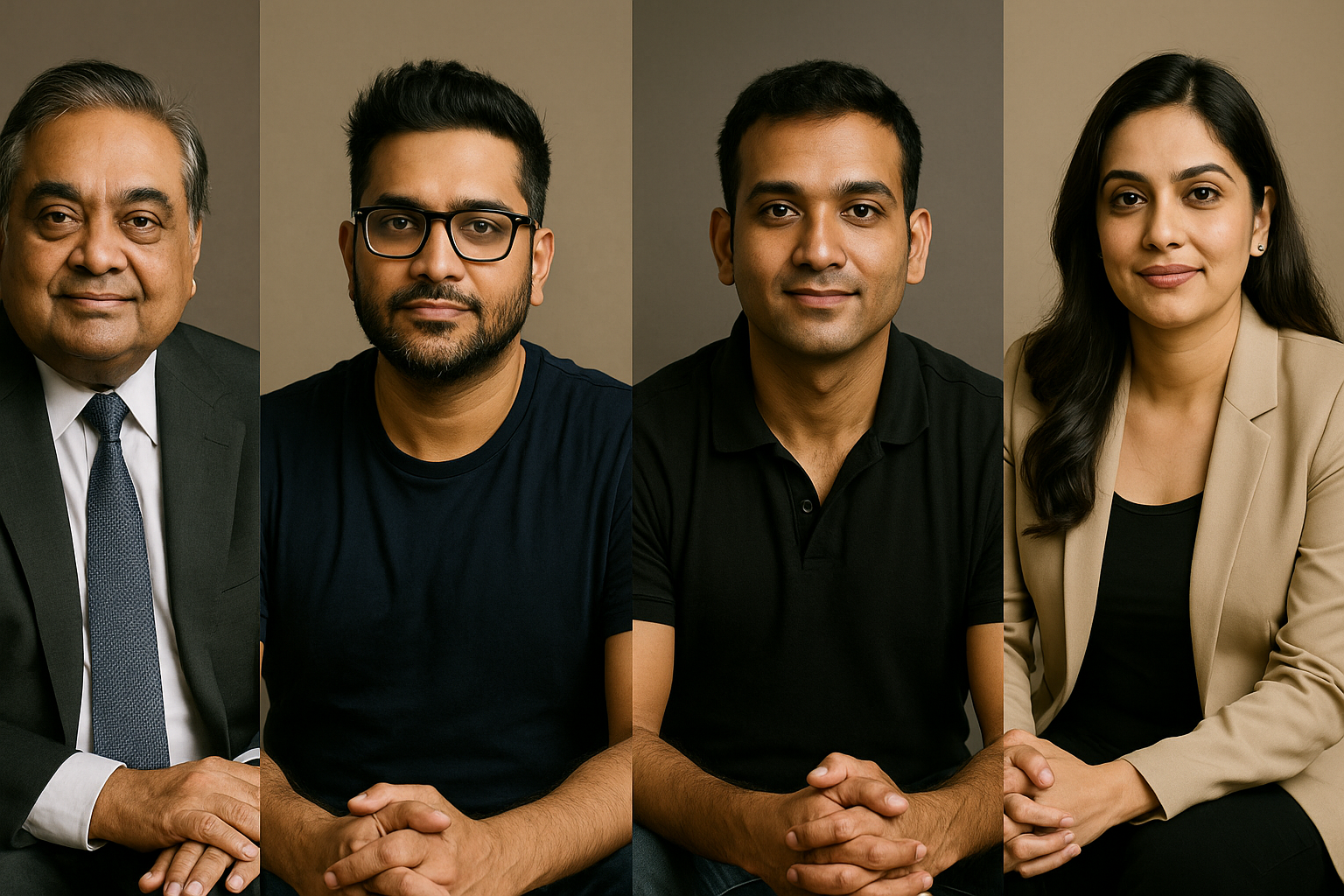In a country where academic achievement is often equated with success, a rising group of Indian entrepreneurs are quietly challenging the assumption.
They did not attend IIMs. They did not complete MBAs. Some never finished college. Yet, they built businesses worth hundreds—and in some cases, thousands—of crores.
Their stories point to a broader truth: in India’s high-growth economy, formal degrees may no longer be the sole ticket to entrepreneurial success.
Dhirubhai Ambani: India’s Original Outsider
The founder of Reliance Industries, Dhirubhai Ambani, left school early and began his career as a petrol pump attendant in Yemen. He returned to India in the late 1950s and started a small textile company that would later grow into one of India’s most powerful conglomerates.
Today, Reliance operates in sectors including energy, telecom, retail, and digital infrastructure. The company’s market capitalization stands at over Rs 20 lakh crore. Its founder, long deceased, is still revered as a self-made visionary who proved execution could outpace education.
Kunal Shah: Philosophy Student to Fintech Pioneer
Kunal Shah never completed his MBA. He left a postgraduate program midway, citing a lack of real-world relevance.
Shah launched FreeCharge, sold it for over Rs 2,400 crore to Snapdeal, and then founded CRED, a fintech company now valued at over USD 6.4 billion (approx. Rs 53,000 crore).
Shah openly credits self-education, reading, and market observation for his growth. He is now one of India’s most followed voices on entrepreneurship and startup culture.
ALSO READ: Everyone Says “Start a Startup”—But What Exactly Is a Startup?
Nithin Kamath: The Trader Who Built Zerodha
Nithin Kamath dropped out of engineering college in Karnataka and spent his early twenties trading stocks.
In 2010, along with his brother Nikhil, he launched Zerodha, a brokerage platform that charged zero commission—a direct challenge to legacy financial institutions.
Without external funding or formal business education, Zerodha scaled rapidly. It now handles more than 15% of India’s daily retail trading volume and is one of the country’s most profitable fintech startups.
Kalpana Saroj: From Child Bride to Industrialist
Kalpana Saroj was married at 12, divorced at 14, and worked in a garment factory by 16. Her rise from poverty, caste discrimination, and systemic exclusion is among the most extraordinary in India’s business landscape.
Using a Rs 50,000 government loan, she revived the failing Kamani Tubes company and turned it into a Rs 100+ crore enterprise. She now chairs the board and is widely recognized as one of India’s most influential self-made entrepreneurs.
Mamaearth Founders: No Ivy League, Just Market Clarity
Neither Ghazal nor Varun Alagh come from elite business school backgrounds. Yet, in under a decade, they built Mamaearth into one of India’s most popular D2C (direct-to-consumer) beauty brands.
Their formula was not built in classrooms—it was built on deep consumer insight. They targeted millennial parents and young adults seeking toxin-free products and created a brand powered by influencer marketing, speed, and social validation.
Mamaearth’s parent company, Honasa Consumer Ltd., is now publicly listed and valued in thousands of crores.
ALSO READ: Built to Last: How 100+ Year-Old Companies Still Lead the Global Economy
Flipkart’s Bansals: Engineers Who Outsmarted Giants
Sachin and Binny Bansal, both IIT Delhi graduates, may not fit the typical dropout mold—but notably, they didn’t pursue MBAs.
Launched in 2007 from a two-bedroom apartment in Bengaluru, Flipkart took on Amazon’s Indian ambitions head-on. The platform revolutionized e-commerce with cash-on-delivery, fast returns, and aggressive customer focus.
In 2018, Walmart acquired a majority stake in Flipkart for USD 16 billion (Rs 1.3 lakh crore), one of the largest deals in global retail history.
Lessons Beyond the Resume
Across these stories, three common patterns emerge:
1. Execution Trumps Credentials
Each of these entrepreneurs succeeded by acting decisively—often without perfect information or institutional support.
2. Learning Is Self-Directed
Most founders became voracious learners—through books, data, observation, and iteration, not textbooks.
3. Traditional Markers Are Being Rewritten
The dominance of elite degrees is increasingly being replaced by performance, product-market fit, and user-centric thinking.
A Shift in Mindset
India’s startup landscape is no longer confined to metros or elite institutions. Tier-2 and Tier-3 cities are producing risk-takers, builders, and thinkers who may never step foot inside a B-school.
In this emerging economy, pedigree matters—but persistence matters more.
For India’s youth watching from the sidelines, the message is clear: it is possible to build something valuable without formal titles—if the idea is strong, the problem real, and the drive relentless.



